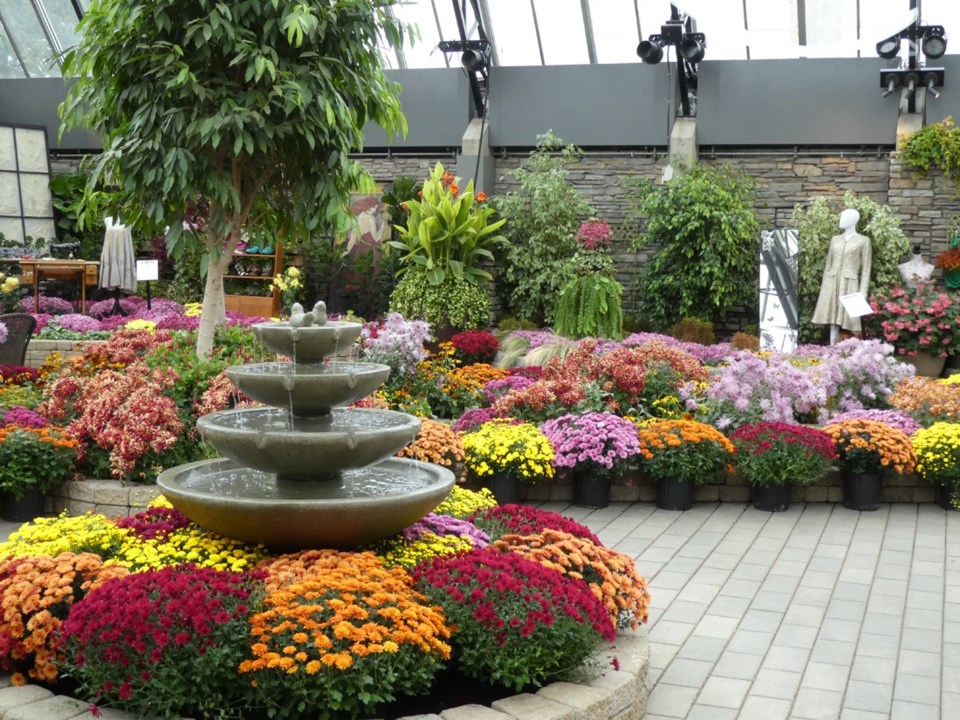YORKTON - A recent trip to Edmonton included a gardening road trip to the Muttart Conservatory to see their fall display.
I probably told you how spectacular their spring display was, with banks of colourful hydrangeas.
Well, the fall display was even more amazing, with chrysanthemums and coleus in a rainbow of colours and textures!
Chrysanthemums are plants that we often associate with fall beauty. They are sturdy in autumn winds, and don’t seem to mind the cooler temperatures. Their colors stay bright, blooms intact, even when our other flowers have long since faded.
What do we know about chrysanthemums? These lovely plants came to us from beginnings in Asia thousands of years ago, and the flowers, chu, are a symbol of good fortune in the language of flowers. If we look at pictures of Chinese art, we will often see plants as an important part of the artwork. We see bamboo, plum blossoms, orchids, and of course, the intricate and very beautiful chrysanthemums.
Chrysanthemums like full sun and well-drained soil. They don’t like wet feet and will appreciate a treat of balanced fertilizer to keep them looking their best. Give them plenty of space, they don’t like to be crowded. Pinching them back will help develop a lusher and fuller plant.
We can plant them in the spring, and they will be one of the last garden cheerleaders in the fall, really coming into their beauty later in the season. We have seen them in a dear friend’s garden as a border, and they are truly spectacular in a mass planting. I have read different articles, some saying that some mums will survive the winter with good protection, other articles saying that we stand a better chance of wintering them if we bring the plants in or take cuttings. It seems to me that the indoor route for our plants holds more chance for success!
We should keep the plants damp (not wet) and as spring is starting to arrive, we should move them to a spot with more sunshine, just to get acclimatized to bright light before we take them outside again.
And here’s an interesting factoid: I have read that the plants are sensitive to light and will be slower to bloom if they are in a location that gets light at night. This was new to me, so, time for more homework. And yes indeed, it seems that for those who want their mums flowering at a certain time, such as commercial growers, the amount of light the mums receive has a positive or negative effect. It is so sensitive that even the lights from passing vehicles at night can throw off the delicate balance. The whole process is called ‘photoperiodism’, and the closest comparison I can think of is the darkness required for poinsettias. Just look it up sometime, it’s complicated but very interesting!
Now, back to the mums. When we saw the beautiful display at the Muttart, I was amazed at the variety, and my homework tells me that there are there were so kinds of mums: daisy mums, cushion mums, singles, quilled, stunning spider mums, pompoms, brush mums, reflex and incurve mums, ( these are the ones with the beautifully shaped petals, sometimes seen in Asian art) and many more, in a huge variety of colors. They are truly breathtaking and hardy plants that will keep giving to the garden’s display from spring till late fall.
Thank you to our friends at YTW for their fine work. Visit the Yorkton hort society at and see what’s new. Have a good week!






